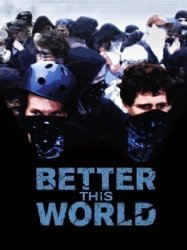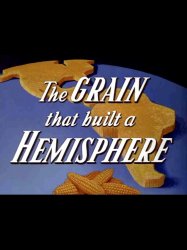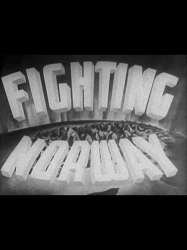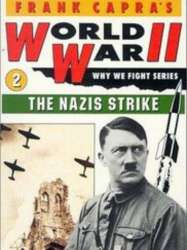Gitmo is a film of genre Documentary directed by Tarik Saleh
Gitmo (2005)

If you like this film, let us know!
- Infos
- Casting
- Technical infos
- Photos
- Videos
- Film quotes
- Characters
- Music
- Awards
Gitmo: The new rules of war is a Swedish documentary about the Guantanamo Bay detention camp by Erik Gandini and Tarik Saleh.
The film features interviews with Janis Karpinski, Mehdi Ghezali and Geoffrey Miller, among others.
Gitmo premiered at IDFA in 2005 and reached mainstream theaters in Sweden on 10 February 2006.
In 2003, a year after Swedish citizen Mehdi Ghezali was detained at "Gitmo", which sparked some media interest in Sweden, Erik and Tarik started filming the documentary and visited the base on a guided tour of selected areas.
Mehdi Ghezali was released in 2004, and was interviewed for the film.
In 2006, the musical score composed by Krister Linder won first prize for music in a TV feature at the Festival international Musique et Cinéma in Auxerre, France.
Comments
Leave comment :
Suggestions of similar film to Gitmo
There are 4 films with the same director, 8965 with the same cinematographic genres, 1560 films with the same themes (including 1019 films with the same 2 themes than Gitmo), to have finally 70 suggestions of similar films.If you liked Gitmo, you will probably like those similar films :

Better This World (2011)
, 1h22Origin USA
Genres Documentary
Themes Films about terrorism, Documentary films about law, Documentary films about war, Documentary films about historical events, Documentary films about politics, Documentary films about terrorism, Political films
Rating71%





Told mostly from the young men's point of view, the film highlights on their political past growing up in a conservative town while they held more liberal, anti-war beliefs. These beliefs led them down a path towards a well-known activist, Brandon Darby, who made a name for himself for his work with hurricane Katrina victims. Known as an aggressive and no-nonsense activist, Darby had credibility from his affiliation with theCommon Ground Collective or Common Ground Relief which worked to secure aid for hurricane victims.

Mission Accomplished (1943)
, 10minutesOrigin USA
Genres Documentary
Themes Transport films, Aviation films, Documentary films about war, Documentary films about historical events, Political films, Documentary films about World War II
The film opens with a brief history of the B-17, its birth in 1935 and its proven war record at Midway and the Philippines. However, the narration states, the B-17 has yet to prove itself over Europe. The time and range needed for a successful bombing raid were not available in the European theatre, some people thought.
 , 11minutes
, 11minutesDirected by Bill Justice, Bill Roberts
Origin USA
Genres War, Documentary, Animation
Themes Environmental films, Politique, Films about the labor movement, Documentary films about business, Documentary films about environmental issues, Documentary films about war, Documentary films about historical events, Documentaire sur le monde du travail, Political films, Documentary films about World War II, Children's films
Rating59%





Explication de l'histoire du maïs, depuis sa découverte par les indiens à son usage moderne puis son importance dans l'économie mondiale.

Food for Fighters (1943)
, 9minutesOrigin USA
Genres Documentary
Themes Documentary films about war, Documentary films about historical events, Political films, Documentary films about World War II

Food and Magic (1943)
, 10minutesDirected by Jean Negulesco
Origin USA
Genres War, Documentary, Fantasy
Themes Transport films, Aviation films, Documentary films about war, Documentary films about historical events, Documentary films about technology, Political films, Documentary films about World War II
Actors Jack Carson, Faye Emerson, Fred Kelsey, Bill Kennedy, Mark Stevens, Dink Trout
Rating57%






Fires Were Started (1943)
, 1h5Directed by Humphrey Jennings
Origin United-kingdom
Genres Drama, War, Documentary
Themes Transport films, Films about the labor movement, Aviation films, Documentary films about war, Documentary films about historical events, Political films, Documentary films about World War II, Disaster films
Actors Fred Griffiths
Rating64%





Un matin de l'hiver 1940, Barrett, une jeune recrue, arrive à la caserne de l'Auxiliary Fire Service , la brigade d'incendie de Londres et est intégré dans une équipe de sept pompiers. Pendant toute la journée, les huit hommes se préparent pour les opérations prévues à la nuit tombée. Londres est bombardée par l'aviation allemande et nombre de bâtiments sont en feu. Le service d'incendie se bat de toutes ses forces contre les flammes. Un navire de munitions, amarré sur la Tamise, prend feu. L'équipe intervient sur cette mission dangereuse, mais un des pompiers, Jackson, est tué et les autres grièvement blessés. Le lendemain, le camarade est enterré, alors que le navire de munitions quitte le port.

Fighting Norway (1943)
, 10minutesDirected by Sydney Newman
Genres War, Documentary
Themes Documentary films about war, Documentary films about historical events, Political films, Documentary films about World War II
Actors Lorne Greene
 , 10minutes
, 10minutesDirected by Clyde Geronimi
Origin USA
Genres Drama, War, Documentary, Animation
Themes Politique, Documentary films about war, Documentary films about historical events, Hitler, Political films, Documentary films about World War II, Children's films
Actors Art Smith
Rating70%





The film features the story of Hans, a boy born and raised in Nazi Germany, who is bred to become a merciless soldier.
 , 57minutes
, 57minutesDirected by Frank Capra, Anatole Litvak
Origin USA
Genres War, Documentary
Themes Documentary films about war, Documentary films about historical events, Political films, Documentary films about World War II
Actors Knox Manning, Murray Alper, Monte Blue, Ann Codee, Walter Huston
Rating71%





Ne désirant pas s’engager sur deux fronts à la fois, Hitler s’est concentré jusqu’alors sur le front de l’Est en réfutant toute hostilité envers la France et la Grande-Bretagne. Mais une fois celui-ci stabilisé, il lance l’offensive à l’Ouest contre les Pays-Bas, la Belgique et bientôt la France…
 , 41minutes
, 41minutesDirected by Frank Capra, Anatole Litvak
Origin USA
Genres War, Documentary
Themes Documentary films about war, Documentary films about historical events, Political films, Documentary films about World War II
Actors Walter Huston
Rating69%





Le film présente et analyse la stratégie allemande pour conquérir l’espace vital hitlérien. Il met en évidence toutes les bassesses orchestrées par Hitler pour étendre petit à petit son empire, malgré les pactes de non-agression signés avec la plupart des pays européens.
 Connection
Connection